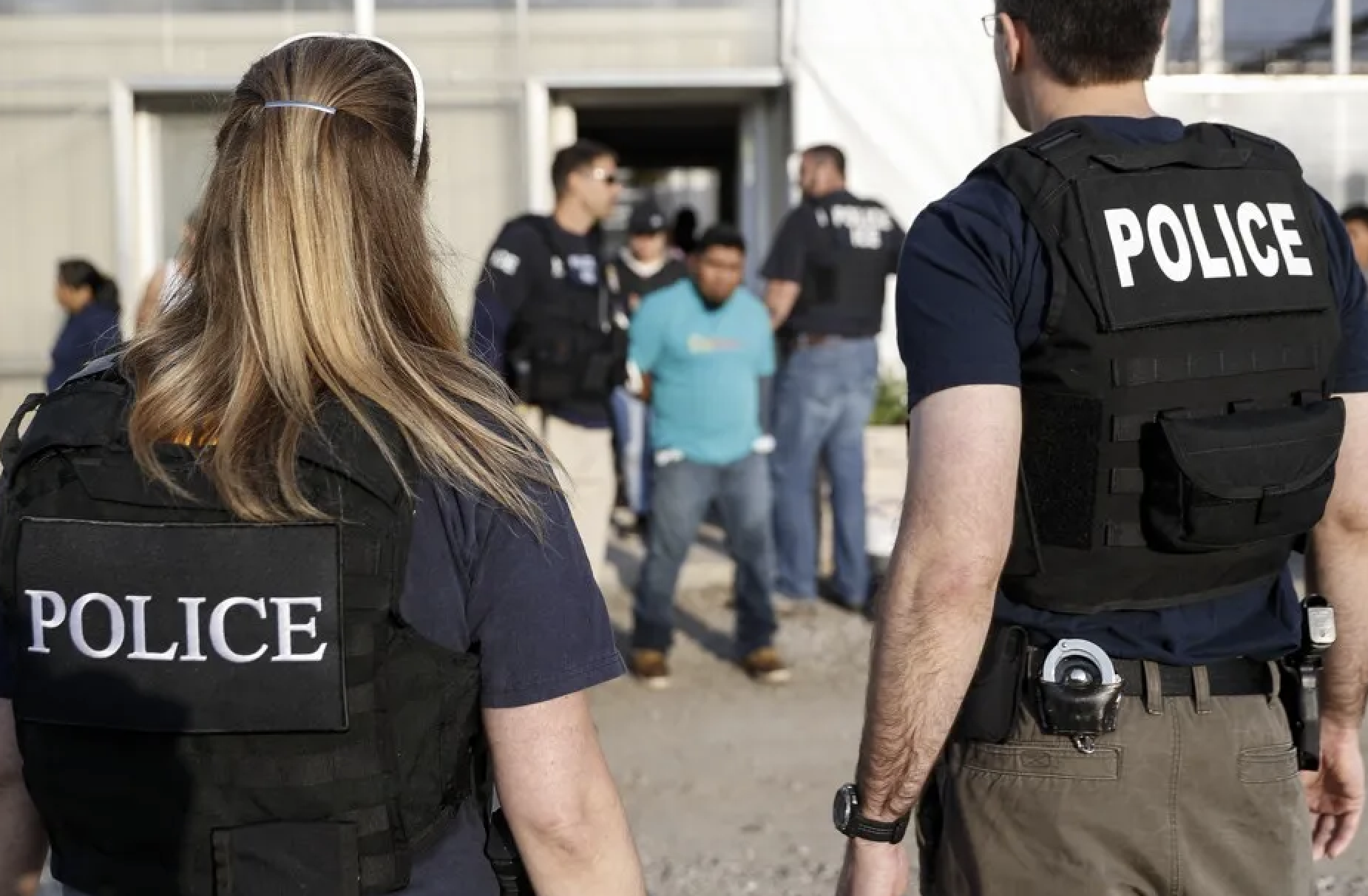In the months running up to the election, Donald Trump ran on an unyielding immigration agenda that advocated for mass deportations, the militarization of the southern border, and the revocation of birthright citizenship. Two weeks into the new administration, President Trump is attempting to keep his promise of sanctioning mass deportations.
Among many executive orders, President Trump lifted a ban placed by the Biden administration that barred the U.S. Immigration and Customs Enforcement (ICE) from operating in “sensitive areas” such as schools, churches, and medical facilities. This has allowed ICE to conduct large-scale raids within said locations and in sanctuary cities like New York City and Chicago.
ICE, with the help of other federal agencies, has stated that they plan to target three cities per week to increase their number of arrests. Acting Director of ICE, Caleb Vitello, has directed agents to aim for 1,200-1,500 arrests a day. While some have described this order as a quota, others have described it as a goal to motivate agents.
Although the raids are said to be targeting solely criminals, a significant amount of those arrested are considered “collateral damage.” These are undocumented immigrants who were not explicitly targeted, but happened to be in the area the moment ICE sought a specific person. Furthermore, these individuals are detained whether they have a criminal history or not. "If you are an individual, a foreign national, who illegally enters the United States of America, you are by definition, a criminal," White House Press Secretary Karoline Leavitt said.
Professor Diana Barnes, a Senior Professor of Spanish at Skidmore, raised concerns about racial profiling during ICE raids. Barnes noted instances in which members of the Navajo Nation have been detained or questioned by federal agencies. There has been a report of at least fifteen Indigenous people being questioned about their citizenship status or detained by federal law enforcement, according to Navajo Nation officials. These reports are currently under investigation.
Although these significant sweeps have been the topic of extensive conversation recently, Professor Barnes emphasized that these ICE raids are nothing new. She further stated that she has seen little to no significant change throughout her time studying and working on issues regarding the border and immigration. “I have been on the border for five different presidential administrations. Every one of them treats the border the same way,” she said.
To understand this rigid approach to immigration, Professor Bob Turner, an Associate Professor of Political Science at Skidmore, explained that it stems from Kris Kobach’s strategy of “attrition through enforcement.” Kobach, a former U.S. Department of Justice official, presented this idea with the belief that if undocumented immigrants’ lives are made extremely difficult, they would ultimately decide to leave the country of their own accord.
Professors Barnes and Turner both agreed on the goal of Trump’s immigration policy: to plant fear among undocumented immigrants. Professor Turner spoke about his son’s observations as a teacher in Salt Lake City by stating that “there's a real palpable environment of fear in his classroom and amongst his students.” Professor Barnes has also noticed this fear among people she knows personally. She has been told that they feel worried about going outside and engaging in daily tasks such as grocery shopping.
“You can’t possibly round up every single immigrant. But what you can do is make their lives a living hell,” explained Turner, referring to the growing fear among immigrant communities. According to a Biden official, it costs around $10,500 to arrest, hold in detention, and later deport on a flight a single person. It would cost an estimated $10.5 billion to deport one million immigrants if the cost remains the same.
Still, many undocumented immigrants decide to stay and endure these circumstances.“It’s their home, it’s their community, it’s what they know,” said Professor Barnes. “The people who are facing this type of discrimination have been here their whole lives.”
Professor Barnes later emphasized the importance of rhetoric, noting that President Trump and conservative media have worked to actively criminalize and dehumanize undocumented immigrants. This sentiment was shared with Turner. “The conservative media machine has created this image of undocumented immigrants as a mania or fear, this boogeyman that is causing all of our problems,” he explained.
Despite the difficult circumstances faced by undocumented immigrants, Diana Barnes advises against apathy, encouraging solidarity. To emphasize, she recounted an anecdote about her time placing crosses to mark where those had died trying to cross the Sonoran desert with artist Álvaro Enciso and her son, Andrew. As they placed crosses, searching for the coordinates where individuals died, Andrew began to feel helpless in the face of immense suffering. In response, the woman holding the coordinates tried to console him, saying, “You can’t do everything. But you can’t do nothing.”
